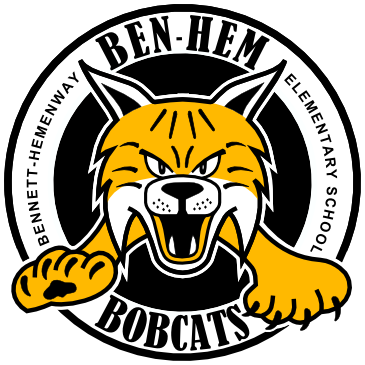 School is back in session and all of our students are here and having a great time with their teachers and all of our support staff. Classrooms are getting up and running and this is a subject that parents often ask a lot of questions about. What happens during the first few weeks of school? It would be easy to just say “Magic!” But that is surely an oversimplification of what is an incredibly complex process.
School is back in session and all of our students are here and having a great time with their teachers and all of our support staff. Classrooms are getting up and running and this is a subject that parents often ask a lot of questions about. What happens during the first few weeks of school? It would be easy to just say “Magic!” But that is surely an oversimplification of what is an incredibly complex process.
Community Building
Community building is arguably one of the most critical tasks that teachers undertake during the first six weeks of school. The extent to which students engage in teaching and learning is a function of the healthy learning environment that teachers and students create together in the first few days and weeks of the school year.
Effective learning communities are founded on a few basic principles. These include:
-
Shared Vision: A common and shared vision of why we are here, what we are here to do and how the classroom will operate in order to achieve those ends.
-
Rules and Routines: A common and shared understanding of the rules and routines that will govern classroom operation. These rules and routines are developed collaboratively. Teachers lead the process and students participate in their development.
-
Strong Relationships: Teachers and students develop strong individual relationships founded on mutual understanding and respect.
-
Ownership: In coming to respect the classroom environment and understand the people they share the classroom with, children develop a sense of ownership and responsibility for the learning environment.
It is important for parents and families to understand that this is an incredibly important time of year and the focus is on building a classroom climate that is highly conducive to learning and growth. To do so teachers focus the majority of their time during the first few weeks on community building, routine setting, and expectations. Over time this creates a situation in which teachers spend less and less time on management of the classroom and more and more time on teaching and learning.
Expectations
Expectations and routines are the tools that teachers use to operationalize the community described above.Behavioral expectations are what we think of as rules. These positive statements govern how we interact with the other members of our classroom and school community.
Behavioral expectations in classrooms are meant to provide students with general operating procedures that give guidance in the many settings and interactions students encounter throughout the day. This is why many classroom behavioral expectations include some formulation of the golden rule, “Treat others as you would like to be treated.” These types of open ended behavioral expectations are most beneficial to children because they require consideration, choice, and reflection on the part of the child.
Consideration, choice, and reflection operate in the cycle of developing and refining human behavior. The open ended behavioral expectations that we described above provide the opportunities that children need to continue the process of internalizing this orientation to their behavior.
When making choices, the child must consider how they would want to be treated before acting (most of our youngsters are just in the beginning stages of developing this skill). The consideration of self in thinking about others is key to developing empathy and a sense of responsibility. As we have all seen with young children, the ability to control impulses is a skill that takes thousands of hours of practice (and an ocean of parent’s patience) to develop. Consideration is one of the underlying skills that supports the child’s ability to inhibit their impulses and make positive choices.
The notion of choice is key. Children (and adults) make thousands of choices every day and they are responsible for those choices. The concept of choice is often a difficult one for children to begin to grasp early on in their lives. You will often hear pre-school and primary age students say things like, “She made me do it.” Obviously this is not the case and supporting children in developing internal responsibility for the choices they make is an exercise that takes many years. Broad, open ended behavioral expectations provide opportunities for practice and learning.
Reflection is an integral element of the behavioral development and learning process. Helping children to reflect upon and consider the impact rather than the behavior is where the real learning lives. Asking a child to reflect on a poor choice is so important. Instead of demanding that a child share a toy, ask them “How would you feel if ______ chose not to share with you? How do you think you are making ______ feel when you choose not to share with them?” Few children will intentionally choose to continue a behavior that is hurting another person. Having these discussions on the good side of the behavioral continuum is equally important as this builds confidence and engenders future success. “You chose to share your toy today! How does that make you feel? How do you think ________ feels because you shared?”
Routines
Establishing routines takes time, practice, and skill. For children to feel safe and secure, it is important that they experience a certain level of “order” and structure in their routine. It is equally important that these routines are consistent so that children know what to expect. Many of our children already have some routines established at home; from brushing their teeth before bed or going to sleep at a set time, routines help our children develop important executive functioning skills that foster independence.
Developing independence builds confidence in children, and when children are confident in themselves, they are highly motivated to learn. Teachers often involve children in the development of these routines and spend a significant portion of the early school days, helping children learn the routines for these reasons.
From learning how to enter school, going from their classroom to Specials, entering the cafeteria, exiting the cafeteria, going out to recess, discovering how to ask for the nurse or the bathroom, to learning silent signals and how to participate in class, or how to exit the building, children have so many routines to learn during the first few weeks of school! Just think of how difficult it was to adjust to the new morning routine, to waking up early, getting ready and having breakfast. Now they have more adjustments and more routines to learn!
During these first few weeks of school, these adjustments can be tiring for children. The good news, however, is that when practiced over time, they benefit our children immensely.






